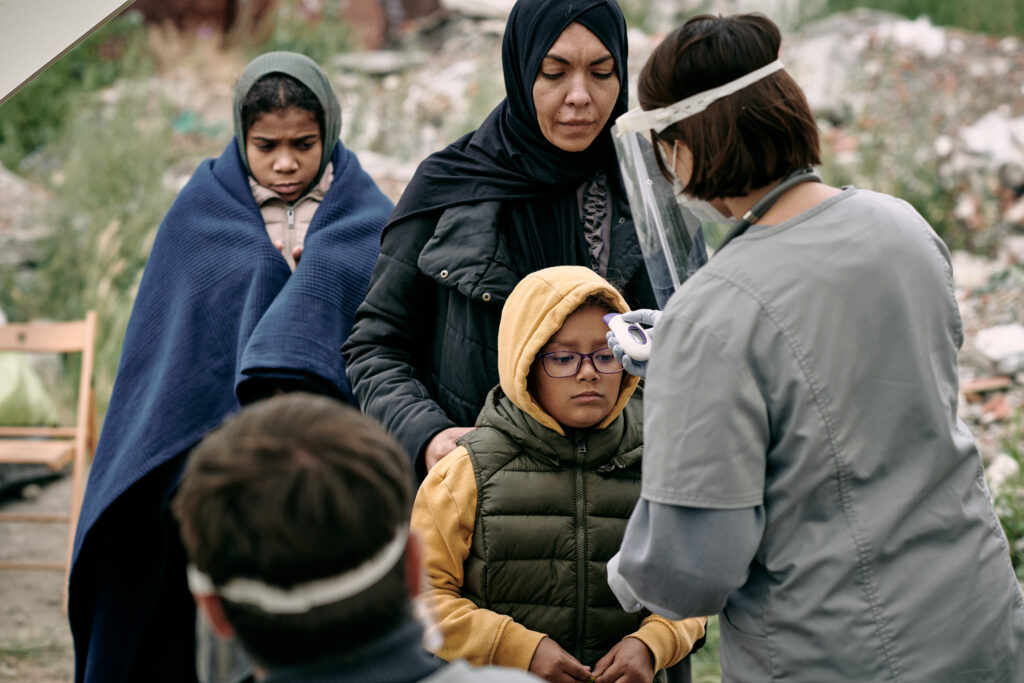Is My Career in Humanitarian Aid Over? Why You Shouldn’t Give Up Despite Aid Freeze

If you’ve been watching the headlines, you might be wondering: “Is my career in humanitarian aid over before it even began?” With ongoing job cuts, political shifts, and funding uncertainty – especially with the U.S. pulling back support under Trump – the sector can feel like it’s in free-fall.
You’re not imagining it. Humanitarian organizations across the globe are tightening their belts. Major INGOs have slashed budgets and eliminated hundreds of positions. Humanitarian job boards once filled with new listings now update more slowly. For those trying to break into the sector – or stay in it – this can feel devastating.
But here’s the truth: Your career in humanitarian aid isn’t over. It’s evolving. And if you want to stay in the game, you’ll need to adapt.
Why Are Humanitarian Jobs Disappearing?
There are a few major reasons we’re seeing widespread cuts in the humanitarian sector:
- Political funding shifts: In countries like the U.S., humanitarian aid has become a political bargaining chip. With Trump back in office, funding to major UN agencies and NGOs have been slashed or redirected, just as it was during his previous term.
- Global fatigue and donor fatigue: After years of global crises – COVID-19, Ukraine, Gaza, etc – some donors are pulling back or redirecting funds elsewhere.
- Over-reliance on large NGOs: The “big players” often get the bulk of funding, and when they cut back, it leaves fewer positions and fewer entry points for new professionals.
What Young Professionals Need to Know
If you’re a recent graduate or someone mid-career trying to pivot into humanitarian work, it’s easy to feel like your dream is slipping away. But here’s the good news: This isn’t the end – it’s a new chapter.
1. Apply Strategically, Not Just Broadly
Don’t just mass-apply to every major INGO you can name. Instead, get laser-focused:
- Research small to mid-sized NGOs in specific regions you care about.
- Look into organizations that aren’t household names but do high-impact work.
- Consider niche areas (climate displacement, mental health support, rural infrastructure) where your background may be particularly valuable.
2. Smaller NGOs = Bigger Opportunities
Smaller nonprofits often lack the budget for high-visibility job postings. That means fewer applicants and a better shot for you – if you do your homework.
- Follow their newsletters and social media.
- Reach out directly with a tailored pitch.
- Offer to consult, freelance, or volunteer if appropriate.
These roles might not come with a big paycheque or prestigious brand name – but they build experience, connections, and momentum.
3. Understand That It Might Take Years
This is tough to hear, but important: Humanitarian careers can take years to build. Even in the best of times, it’s a slow burn. Right now, it may take longer. But that doesn’t mean your efforts are wasted. Every small contract, internship, or volunteer stint is a building block.
4. You Can’t Opt Out Entirely
It’s tempting to step away completely, to say “maybe this isn’t for me after all.” But if you still care deeply about this work, don’t check out.
- Stay informed about crises and responses.
- Attend webinars, network on LinkedIn, connect with people in the field.
- Keep applying – regularly. Even when it feels pointless.
- Consider applying to the United Nations Volunteers program
- Bank your experience at home (it took me over 5 years of work experience in my home country before getting UN interviews!)
- Complete your Masters program if you haven’t already
- Apply to UN Consultancy posts
- Start your own NGO
Momentum matters. The sector will rebound eventually – and the people who stayed in the loop will be the ones ready to step up when it does.
Final Thoughts: Don’t Give Up
The humanitarian sector is under strain – but it’s far from finished. It’s evolving. And while breaking in or staying in has become more difficult, it’s not out of reach.
If you still feel that deep pull to serve, hold onto it. Don’t walk away. Instead, adapt: stay informed, be strategic, explore smaller organizations, and remain connected to the field.
Your career in humanitarian aid isn’t over – it’s simply unfolding along an unexpected path. And if there’s one thing this sector teaches us, it’s to prepare for the unexpected.
Use this season to your advantage. Build experience locally. Volunteer. Launch your own initiative. Pursue further education. And yes – spend time with the people you love. While the job market may feel uncertain, this time isn’t wasted. Every meaningful step you take now can strengthen your future applications.
Stay hopeful. Stay engaged. Your impact is still ahead of you.
Looking for more humanitarian aid related resources? Explore The Global Humanitarian.
- The Difference Between Humanitarian Aid and Development Aid
- Best NGOs for Entry Level Jobs
- United Nations Volunteers Program
- How to Find Humanitarian Aid Jobs in 2025
- How to Get a Job at an International NGO
- Humanitarian CV/Resume Advice and Examples
Comment, subscribe, and follow me on Instagram @the.global.humanitarian
Please note: the views and opinions expressed on this blog are that of my own and do not represent the opinions of any agency mentioned.